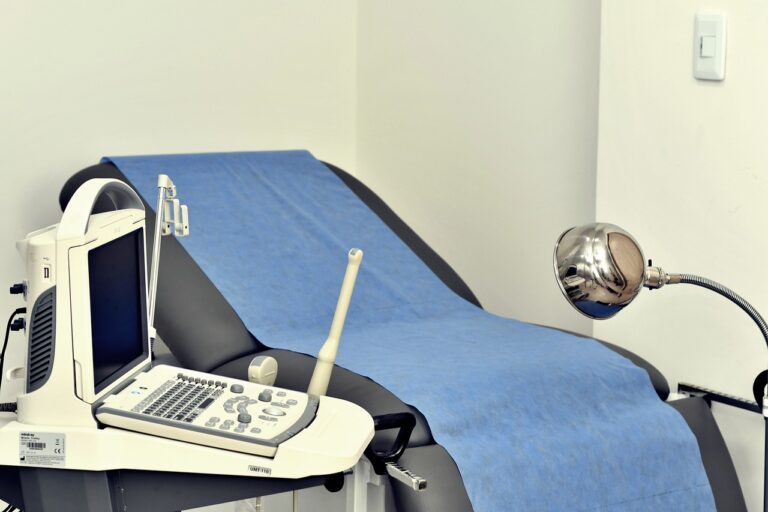Many fertility specialists ask their patients to refrain from sex during the treatment. The reasoning is to allow the embryo to attach and develop on the uterine lining without any interference.
It also decreases the risk of OHSS (ovarian hyperstimulation syndrome) and ovarian torsion. However, this advice isn’t universally followed.
It’s OK
After spending months, if not years, trying to get pregnant naturally, many couples come into their IVF treatment feeling that they want to play it safe. That’s why they often choose to abstain from sex from the start of their stimulation cycle until they see the positive results of their pregnancy test. But this complete sex lockdown can take a toll on even the strongest of relationships. And some experts are urging patients to reconsider this strategy.
When a woman is on the IVF protocol, she will often be prescribed hormones to stimulate her ovaries and prepare them for embryo implantation. These hormones can affect a woman’s libido, as well as her vaginal lubrication and pH balance. As a result, it’s often recommended that couples use barrier contraceptives during this time.
However, there are some instances when it is actually okay for a woman to have sex during her IVF process. For example, sex during the ovarian stimulation phase can be beneficial because it can help promote blood flow to the uterus.
Similarly, it is sometimes recommended that men don’t ejaculate for three to four days prior to having their semen harvested for IVF. Again, this can improve the quality of the semen and increase the likelihood of a successful egg retrieval. However, it is important to note that sex during this stage of an IVF cycle can be difficult due to the pain caused by the enlarged ovaries.
It’s not OK
There’s no way around it: if you’re going through IVF, there are certain times when it isn’t safe to have sex. You should avoid unprotected sex from the start of your ovarian stimulation (which is when the hormone injections begin) until after your embryo transfer, and you should also refrain from it during your two-week wait after the procedure.
The reason for this is that your ovaries will be enlarged during this time. If you’re having sex when they’re so big, it could cause them to twist (called “ovarian torsion”), and that would be dangerous for both of you.
But that’s not to say that there aren’t other instances when you can have sex. In fact, Flyckt says that having sex during IVF can actually be beneficial to your treatment. This is because it can help you stay connected to your partner during a difficult and stressful process, and can even boost your mood a little. Plus, your hormone levels will be up anyway, thanks to the fertility medications you’re taking.
It’s important to note that if you’re using an egg donor or surrogate, you should still abstain from unprotected sex during the IVF cycle. This is because they’ll be undergoing a lot of the same treatments as you, and it’s best to protect them from any risk of multiple gestation pregnancy.
It’s not safe
IVF treatment is a long and arduous process that can be physically and emotionally draining. It can also cause couples to distance themselves from each other, particularly if they focus all their attention on the end goal of becoming parents. Couples need to keep communication lines open, and it may help to seek out couples counselling if necessary.
Many fertility clinics advise their patients to refrain from sex during egg retrieval, embryo transfer and the two-week wait, because it could interfere with successful implantation. Some doctors believe that the introduction of semen during sex can disrupt the uterus’s mucus barrier and thereby decrease the likelihood of a successful implantation. However, according to Flyckt, a 2020 study found that there is no scientific evidence supporting this theory.
Similarly, women may be asked not to have sex right after an IVF transfer because sex can increase the risk of ovarian hyperstimulation syndrome or ovarian torsion, which can lead to severe pain and potentially multiple pregnancies. In addition, the uterus is often bloated and sensitive after an IVF embryo transfer, making sexual intimacy uncomfortable.
Additionally, fertility specialists recommend using barrier contraceptives during this time to avoid multiple pregnancy, as sex can increase the chances of a miscarriage. Women who have a blighted ovum may also be warned against having sex because it can further damage their chances of getting pregnant naturally in the future.
It’s not fun
After spending months, if not years, trying to conceive naturally, the focus of most couples shifts solely to IVF. It’s not an easy treatment for a couple to go through, and the hormones involved can make it even more difficult. The whole process is stressful, and when you’re constantly checking your temperature and limiting sexual activity to when ovulation dictates, it can take its toll on your relationship as well.
During the ovarian stimulation phase, it’s recommended that you avoid sex to prevent your ovaries from becoming enlarged, which can cause pain. Additionally, if you ejaculate right before a semen analysis, it can alter results and inaccurately change the treatment course.
When it comes to the two-week wait after embryo transfer, most fertility practices recommend abstinence, too. The uterus is still bloated and sensitive, and there’s a good chance you’ll be hoping for a successful implantation. However, if you have a healthy uterus and don’t get pregnant in the first month after the procedure, it’s completely safe to engage in sexual intimacy.
Some doctors discourage sex after an implant to ensure that the embryo is not knocked loose, but Flyckt disagrees. She says that there is no clear medical evidence that sex will cause an implant to fail, and she also points out that a 2020 study has confirmed that it won’t increase the chances of multiple pregnancies.
See Also:






